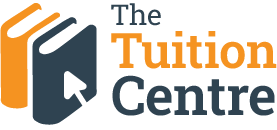Leaving Cert Reform - Opinion Piece
Proposed Reforms
• Introduce Additional Assessment Components worth 40% of the final grade in Leaving Certificate subjects (and bring the syllabi in these subjects up to date)
• The intention is to reduce the stress that is believed to be experienced by students sitting a final examination that is currently worth 100% / 80% of their final grade in the majority of subjects.
Problems with this approach to reform.
1. AI - The arrival of ChatGPT in November 2022 has been followed by a blizzard of further Generative AI developments, and presumably there are many more to come. The new LC syllabus is staggered, with the first tranche of subjects set to be examined in 2027, the second tranche in 2028 and the third in 2029. Given the spectacular leaps forward in AI in the two and a years since it exploded onto the world, it is staggering to think of where we will be in 2029 – and how AI then will impact a syllabus that began, in conception at least, before the arrival of AI.
To place teachers in a position where they will be responsible for determining if the work of their neighbours children is authentic or not when many experts in 3rd level institutions are informing us of their inability to detect if investigative materials have been created by AI is deeply unfair on the teaching profession. The throw-away assurance that “appropriate training will be provided” is anything but reassuring.
2. The Matthew Effect - Inequality
A greater concern has to be the advantage that such a decision will inevitably confer on students from advantaged backgrounds. Regardless of how carefully a student’s work outside the examination hall is monitored by their teachers, students who have support and resources and/or access to additional advice and teaching outside school will be at considerable advantage when preparing their investigative projects. In a high stakes points system such as the CAO, there will inevitably be parents who are willing to do whatever it takes to secure a university place for their child. Furthermore, schools that enjoy greater resources than other can, for example, facilitate the employment of laboratory assistants etc to assist students with practical experiments etc.
3. The Reforms are likely to lead to an increase rather than a decrease in stress for students
The notion that creating AAC’s worth 40% will reduce the stress on students facing into their final exam is well-intentioned but naïve. Currently the Irish oral exam is worth 40% of the final grade and is carried out months before the final written exam. Anyone who believes that students walking into their written Irish exam are experiencing just 60% of the stress associated with a final exam have never worked in schools. The experience of the Junior Cycle reform, where CBA’s (Classroom Based Assessments) were introduced in all subjects, is widely accepted to have increased stress on students and reduced the time they are able to spend on extra-curricular activities.
Much talk was made about such reforms representing an “easy win” for government. There is nothing easy about educational reforms, nor should there be. Careful research and future proofing is required to ensure that the integrity of the system is preserved.
Legal
-
Privacy Policy
-
Terms of Use
-
Cookie Policy
-
Change Cookie Settings
Copyright © The Tuition Centre 2025

